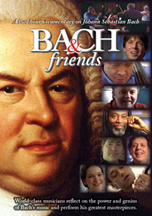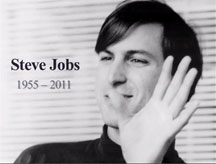Philip Glass
Philip Glass

Bach articulated the language of music in the most complete and richest
and complex form that any single person has ever been able to do.



When you come across people like Michelangelo or Einstein or Bach,
men of tremendous artistic or scientific vision, what’s inspiring about them
is that in fact they’re human beings like us,
and yet they’ve realized a potential that we haven’t.
If you think about the quantity of music that he composed,
we can’t really talk about composition in the normal sense.
I think basically what Bach wrote down was what he heard.
I don’t think he ever composed anything.



I think pieces arrived in his mind complete.
There’s no other way to explain the massive amount of music he wrote.
When we talk about composition, I wouldn't say that he composed
in any way that you and I would think about composition,
where you had to think about the structure
and wonder what was going to happen next.
I think for example the fugues, it seems when I listen to them,
it sound to me he just heard them and he just wrote them down.



When you say how can someone have done this,
we’re talking about a genius. What do we mean by that?
We mean that in the way we talk about
how did Einstein think of the theory of relativity.
Well, he was a genius. How did he think of it?
He says that he visualized it and then he spent years
trying to develop the mathematics to describe what he saw.



Bach was given a beautiful system of notation
that had developed over a number of years.
He could go from the auditory vision
to the notation without any process. He could hear it that way.
What’s staggering about this is that works of that complexity
could have been visualized with such clarity.



To me it’s a great inspiration that human beings are capable of that
and we are related to them without any question.
We’re part of them, they’re part of us
and they’re the best of us and we can see it.
They’ve articulated it and they probably
don’t know very much more about it than we do.



The poetry of mathematics and the poetry of science
is to me in the neighborhood of the poetry of music.
Look at the Art of the Fugue.
It’s a catalogue of musical manipulation.
To be able to do that, it’s like a gymnast
who can walk on a high wire
and somehow the wire isn’t there.
It’s just in space.






